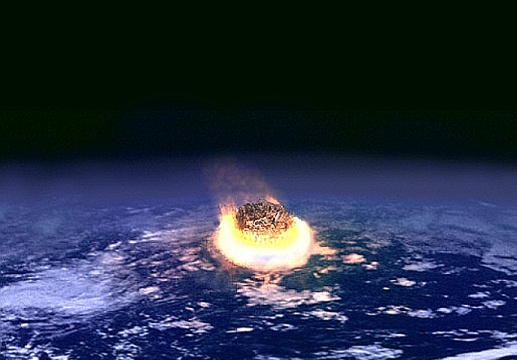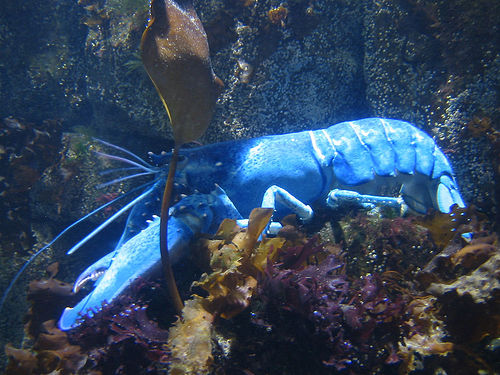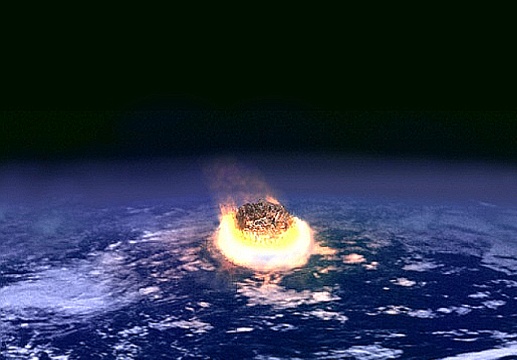
Image courtesy of NASA.
There are a few key facts to know about Earth being potentially hit by an asteroid, which could happen in about 25 years (so yes, if you’re reading this, you will probably be alive to see it):
- It’s best to try not being a dinosaur.
- Bruce Willis will save you.
- Robert Duvall won’t.
- And our best hope may be solar-powered lasers.
Two scientists at the University of Strathclyde in Scotland have developed a solar-charged asteroid-busting laser array, which would make deflecting the asteroid (it’s called Apophis) as easy as playing a 1980s arcade game. The lasers would be mounted on a fleet of small spacecraft, and if Apophis turned out to be a threat, they could go needle away at it until it moves. Laser-shaving layers of rock from the asteroid’s surface would create a spray of vaporized debris, which — because every action has an equal and opposite reaction, especially in friction-free space — would nudge Apophis off course. Yay physics!
So far, scientists have been focusing on the idea of a single mega-laser, which would have badass firepower but be dangerous to launch and difficult to keep cool. This theoretical Big Mama laser would need to be powered by a nuclear reaction to get the kind of juice it would need. But a swarm of smaller lasers could be launched and cooled easily, and can get plenty of power from the sun. Also, at the risk of sounding callous (they’re unmanned! I’m almost certain! The paper [PDF] does keep talking about “active control” but come on, this isn’t actually a 1998 action movie), if you lose a couple spacecraft from a swarm it’s not as big of a deal as damaging your one monster nuclear laser.
Of course, this may all be totally moot — last time we got worried about Apophis, it was because of a less-than-3-percent chance that it would hit Earth in 2029, and then scientists re-ran their data and realized it wouldn’t. But even if this turns out to be a non-issue in 2036 as well, it’s kind of nice to know that people are thinking up clever, sustainable-ish new ways of protecting us from giant flying space rocks. Suck on it, asteroids! We’ll destroy OURSELVES, thank you very much!



